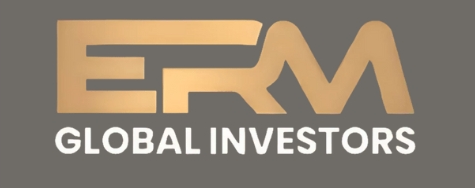Introduction
The Yamuna Expressway Industrial Development Authority is making an all-out effort to increase the manufacture of medical technology by inviting global leaders. Recently, YEIDA’s team spoke with executives at GE Healthcare and Philips India about investment opportunities in its Sector-28 Medical Devices Park. Such a park could turn into a key hub for MedTech with advanced facilities, strong government backing, and significant incentives.
Sector-28 Medical Devices Park: An Overview
YEIDA Medical Devices Park is located on 350 acres in Sector 28, close to the proposed Noida International Airport at Jewar. The project will be assisted by the central government under the scheme for “Promotion of Medical Device Parks” and will be built at a total cost of ₹439.49 crore, including a grant of ₹100 crore by the GoI.
The infrastructure is already 90% complete, and half of the land has been allotted — 101 plots out of 350 acres. These allotments represent committed investments of ₹1,291 crore. Some of these companies have also started construction on their plots, reflecting growing belief in the park’s potential.
GE & Philips Engagement
A delegation from YEIDA visited Bengaluru to engage directly with GE Healthcare and Philips India. The GE visit included a meeting with Chaitanya Sarawate, President & CEO for South Asia. Discussions included a tour of GE’s X-ray tube manufacturing facility, where YEIDA was able to highlight how its park could support advanced device manufacturing.
The YEIDA team, during its meeting with Philips, presented detailed plans for the Sector-28 Medical Devices Park.
They envisioned a common scientific infrastructure comprising biomaterial testing laboratories, prototyping units, AI, and IoT for medical devices. They also invited Philips to be a part of this. At the innovation centre of Philips, YEIDA demonstrated an integration of its R&D capabilities with Philips’ technological objectives.
Infrastructure & Innovation Ecosystem
Beyond mere land allotment, YEIDA is creating an enabling ecosystem for the park. It will provide CSFs-labs for biomaterials testing, electronics assembly, and rapid prototyping. Testing labs that support in-vitro diagnostics, imaging devices, and implantable technologies will also be present. YEIDA also proposes to create advanced AI/ML and IoT labs that will let companies develop connected and smart medical devices.
Infrastructure in the park will include a central warehouse to ease logistics. There will also be Administrative Buildings and a Centre of Excellence housing collaborative R&D activities. YEIDA also plans incubation support facilities to help start-up companies, especially in health-tech, build prototypes and move fast from idea to product.
Incentive Structure
An extremely attractive incentive package makes it easier to attract global and domestic MedTech firms. Subsidized plot rates, starting from ₹4,705 per sq m for large plots, are on offer through YEIDA. Investors get a 100% exemption on stamp duty. Companies can claim a refund of 70% on SGST over ten years, which is highly attractive. There is also a capital interest subsidy of up to 7.5%, which contributes to lower financing costs for firms building their operations.
Focus Medical Device Segments
YEIDA’s park is not just about making general medical equipment but has a sharp focus on high-tech, high-impact device categories. These include radiology and imaging systems, including both ionizing and non-ionizing, cancer-care and radiotherapy devices, in-vitro diagnostic machines, electronic and surgical implants, and respiratory or cardiac care devices like catheters and dialysis tools. This focused approach will make the park more attractive to innovative companies involved with fast-growing sectors.
Significance for India’s MedTech Industry
This initiative by YEIDA is yet another strong step toward reducing India’s dependence on imported medical devices. In building the manufacturing and innovation hub in Uttar Pradesh, YEIDA is again contributing to the vision of Make in India in healthcare technology. The park can create meaningful employment opportunities, not only in the manufacturing itself but also in research and development, logistics, and quality testing, too.
This will be a key export hub if global and domestic medtech firms commit to the park. With its proximity to Jewar Airport, the park will enjoy logistical advantages that would allow companies to ship finished devices overseas efficiently. Simultaneously, it is expected that the shared facilities would create a community of research-driven startups and larger companies developing next-generation medical technologies.
Conclusion
Sector 28’s Medical Devices Park at YEIDA is emerging as the latest investment destination for the MedTech industry. With strong infrastructure, generous incentives, and strategic outreach to companies such as GE Healthcare and Philips, the park is poised to become a national hub for manufacturing and innovation in medical devices.


